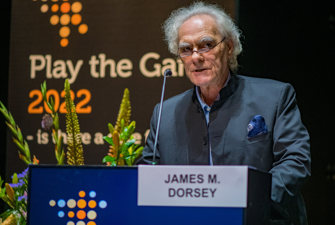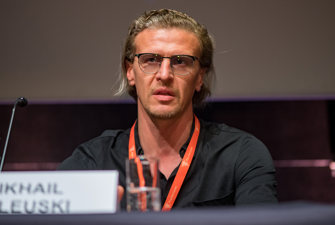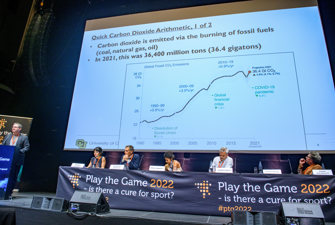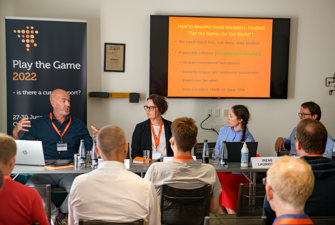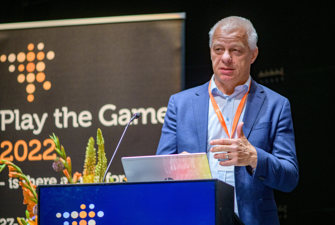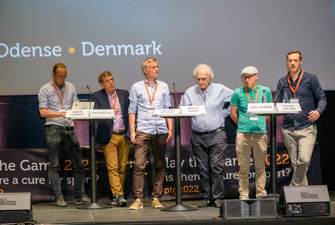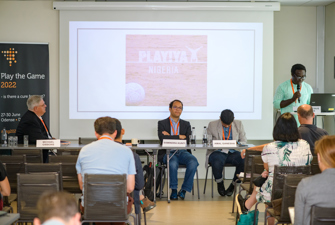Athletes and commercial interests put pressure on European Sports Model
One athlete’s union called the European Sports Model for ‘broken beyond repair’ in a session at Play the Game that discussed the pros and cons of organising sport in a pyramid structure where a proportion of revenues from professional sports is allocated to grassroot disciplines.
Traditionally, European nations have organised sport in a very specific manner. Competitions are generally organised in a pyramid structure that includes promotion and relegation. A proportion of revenues from professional sport is allocated to various grassroots disciplines, while a strong voluntary sector provides support to grassroots sport. Furthermore, it is customary to allow sport’s governing bodies a high degree of independence.
For supporters of the model, it serves to limit the influence of private interests with a profit motive, and whose first obligation is to their shareholders. The ill-fated European Super League proposal, traditionalists say, is an example of the folly of alternative models.
Athlete’s union: The model is broken beyond repair
However, the European model is currently under strong pressure not only from commercial interests, but also athlete advocates, Play the Game was told.
Dejan Stefanovic, board member of FIFPro, claimed that the traditional model is “broken beyond repair.”
This is evidenced, he said, by huge revenue disparities in different competitions, unfeasibly congested calendars for professional athletes, and the increased entrenchment of existing economic interests and monopolies.
The existing model, Stefanovic said, bestows disproportionate power on sport's governing bodies that often lack democratic controls and transparency. Such organisations are currently using their strong regulatory powers to further their commercial interests.
“Regardless of their non-profit status, sports federations operate essentially as businesses. Athletes’ unions are weak because the European model denies them representation. The revenue distribution systems that are supposed to justify the model are ineffective. In the guise of supporting traditional values, the European model is protecting economic interests and monopolies.”
Money should stay in the pockets of sports
Poul Broberg, director of public affairs at Denmark’s National Olympic Committee, disagreed.
“For me, this is a very simple question. Whether to keep the money inside the pocket of sports, or let it go to private investors. It is perfectly legitimate that sport is fighting to keep its money."
If private businesses invest in sport, any surplus will not go back into sport, it will go to into private pockets,” he said.
“We can discuss the model and the content, that’s fine. But the EU Commission needs to acknowledge that Europe needs open competitions, not the closed competitions that we see in the United States. We need a solidarity mechanism. Unfortunately only a few sports are earning enough money to demonstrate solidarity. For sure football is one, but many of the smaller federations are unable to. This is a legitimate fight for sport. A fight for regulations that would prevent its funds going into private pockets,” Broberg continued.
“The European Super League would have been great for twenty clubs. They would have earned a lot of money. But money will be reduced in the other competitions. For me this is a fundamental question, and my position is quite clear,” he said.
Branding efforts could undermine broad impact of sport
The European model risks being undermined by sports organisations’ desire to “brand themselves”, warned Mogens Kirkeby, president of the International Sport and Culture Association. Often their aim is to become the preferred partner of the larger governing bodies.
“Over-branding and biased advocacy are limiting sport’s broader impact. Very heavy branding may raise the attractiveness of these organisations to international bodies such as the IOC, but it can also limit their ability to partner with other, potentially valuable partners like the health sector. Branding is distorting the understanding of sport.”
Francesco Ricci Bitti, president of the Association of Summer Olympic International Federations, said that the IOC prefers to talk about a “solidarity model” rather than a European model.
“We do not talk about autonomy so much at the IOC, we talk about responsibility and principles. The importance of revenue generation for sports organisations should not be underestimated,” he said.
